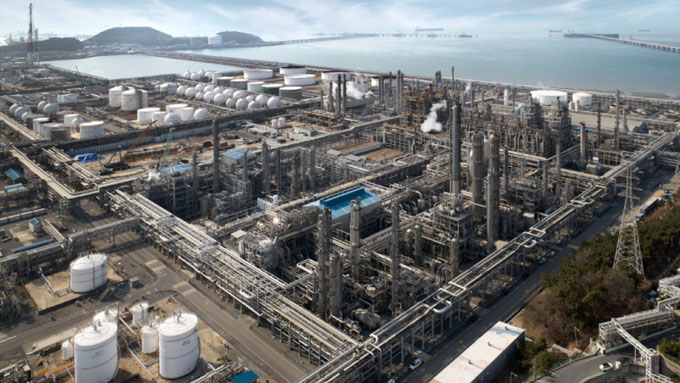A joint venture of LG Chem and Enilive to process approximately 400,000 tons of renewable bio-feedstocks by 2027 at Korea’s first HVO/SAF facility

LG Chem’s Daesan Chemical Complex in Seosan, South Korea
LG Chem and Enilive have taken a major step toward biofuels growth by breaking ground on Korea’s first hydrotreated vegetable oil (HVO) and Sustainable Aviation Fuel (SAF) production plant in LG Chem’s Daesan Chemical Complex located in Seosan, Chungcheongnam-do, 80 kilometers southwest of Seoul. The plant is going to be constructed by the LG Chem and Enilive joint venture, called LG-Eni BioRefining, and it is scheduled for completion in 2027 and will annually process approximately 400,000 tons of renewable bio-feedstock.
HVO and SAF, whose demand is expected to surge driven by renewable fuel mandates, are made by hydrogenating more sustainable vegetable oils such as Used Cooking Oil (UCO) and other waste and residues through Ecofining™, a technology developed by Eni in collaboration with Honeywell UOP. Taking into account the entire product value chain, HVO and SAF greenhouse gas (GHG) emissions are significantly reduced if compared to traditional fossil fuels.
“LG Chem is transforming its portfolio to build a low-carbon foundation that ensures both a progressively more sustainable growth and profitability,” said Shin Hak-cheol, CEO of LG Chem. “By advancing innovation in renewable fuels and bio-based feedstocks like HVO, we aim to strengthen our global competitiveness and meet our customers’ evolving needs efficiently.”
“The Seosan biorefinery breaking ground reaffirms Enilive’s strategy in offering increasingly sustainable products and our company’s position as a leader in biofuels production” said Stefano Ballista, Enilive’s Chief Executive Officer. “Together with the plants that are already operational in Italy and in the United States of America, and with new biorefining plants under construction in Italy and Malaysia, the upcoming biorefining plant in Daesan will contribute to reach our 2030 target to increase our biorefining capacity to over 5 million tons per year, with the potential to produce more than 2 million tons per year of SAF”.
With the construction of Korea’s first HVO/SAF facility, LG Chem reinforces its role as a leader in more sustainable innovations, contributing to the global transition to renewable energy while progressing toward a net-zero future. By integrating HVO into its supply chain, LG Chem plans to reduce carbon emissions and expand its portfolio of ISCC PLUS-certified bio-circular balanced (BCB) products. Target applications include Acrylonitrile Butadiene Styrene (ABS) for electronics and automobiles, Ethylene-Vinyl Acetate (EVA) for sporting goods, and Super Absorbent Polymers (SAP) for hygiene products.
KeyFacts Energy: Eni Italy country profile l KeyFacts Energy News: Energy Transition
 KEYFACT Energy
KEYFACT Energy